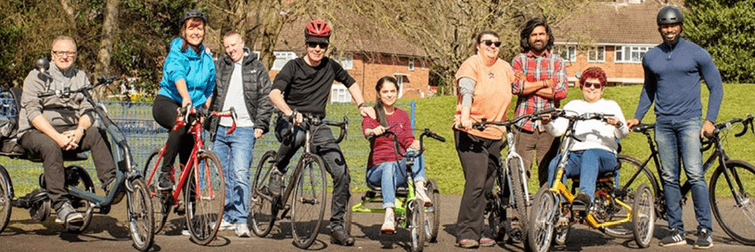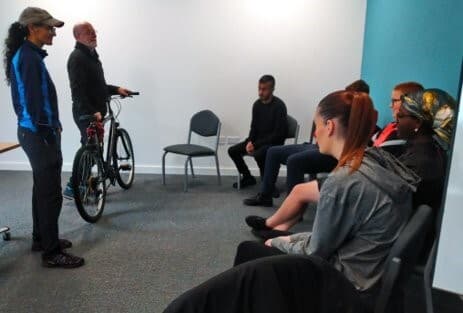
blog: A Bottom-Up Approach - Cycling for Everyone
Wednesday 26th October 2022
In April 2022, I was appointed to support Transport for West Midlands (TfWM) with the Cycling for Everyone programme, assisting in the project management of the programme. I was seconded to TfWM during the mobilisation phase and worked with colleagues in the Cycling and Walking Team to ensure the programme evolved and progressed towards meeting its targets.
What is Cycling for Everyone?
TfWM has a vision to realise the full potential of cycling’s contribution to the health and wealth of the West Midlands and to raise levels of cycling across the West Midlands Metropolitan area to 5% of all trips by 2023. The Commonwealth Games presented a unique opportunity to help deliver on this vision by encouraging people to be more physically active and enjoy cycling as a way to get around and stay active. This led to the development of the Cycling for Everyone programme.

Evidence from the walking and cycling index shows that there are disparities in the spread of people cycling. The Cycling for Everyone programme is being delivered in some of the most deprived areas across the region to give communities the chance to try cycling and use it as an everyday form of transport. The programme aims to support those on lower incomes, the BAME community, women, and people with disabilities.
The Cycling for Everyone programme is completely community-led, meaning that communities essentially pick and choose which services they want implemented in their area. We provide the options, and they decide what they want delivered based on local knowledge and levels of demand.
The suite of services available include:
- Adult and child cycle training
- Bike maintenance training
- Ride leader and volunteer training
- A free bike giveaway, subsidised cycle hire minutes, and adapted cycle loans,
- Led rides
- School and Workplace travel challenges
Since the programme engages with some of the most deprived areas in the region, delivery is targeted at very particular communities, which forms a crucial part of the eligibility criteria for those taking part in the programme.
Collaboration is key
Throughout the process, we have worked with the seven local authorities from across the West Midlands to understand what is already being delivered in their respective areas and where there may be gaps in provision. It was also important to gather insight into local contacts and community groups that could be approached to offer the range of services. With this knowledge, potential sites for delivery were also identified, and it was possible to see how the Cycling for Everyone programme could complement other ongoing behaviour change work, such as that being promoted through the Local Authority Capability Fund. Collaboration was key to ensure messaging was clear and to avoid any confusion from individuals and organisations involved.
What does the Cycling for Everyone programme look like today?
With Cycling for Everyone drawing to a close at the end of November 2023, delivery is well underway. TfWM, along with the two suppliers appointed to deliver cycling services, have worked with a range of local groups to build relationships and to understand what it is they want implemented. These include youth groups, women’s only groups, community centres, leisure centres, schools, and workplaces.
The community-led focus has meant that there needs to be greater flexibility in the services provided and brings insight into what people want delivered on the ground.
This knowledge can be used to help shape future funding programmes as it provides a stronger understanding of what communities want implemented from the bottom up and how they envisage it making a positive difference to local people.
Survey data is being collected before and/or during every activity and follow-up surveys will be conducted in the future to establish any changes in travel behaviour and attitudes towards cycling.
Looking ahead
There will be a number of lessons learnt from the implementation of the Cycling for Everyone programme. Its unique design, involving a bottom-up approach, presents a real opportunity to apply these lessons learnt to deliver successful behaviour change programmes in the future.
As new funding is set to be released in the coming months, such as the Local Authority Capability and Ambition Fund, there will be a continued push to meet local and national strategic objectives for walking and cycling. ITP has a specialist team of experts in the design, delivery, and evaluation of behaviour change programmes across a range of contexts and locations whose focus is on promoting cycling and walking for different trips to those people more amenable to change their travel behaviours based on market segmentation principles, with a keen focus on the carbon reduction benefits. This includes co-designing approaches that stimulate a change in travel behaviour and delivering bespoke programmes to effectively engage each target audience identified with the agreed programme of interventions and campaigns.
Find out how ITP can support behaviour change projects by contacting Jim Bradley or visiting the influencing behaviour page on our website.
